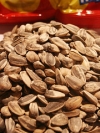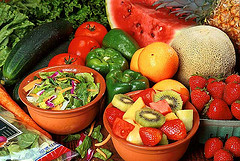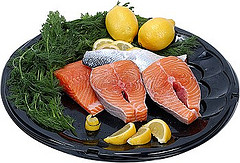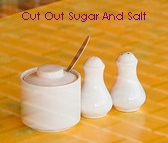Dietary Tips

Nutritionists and dietary therapists have now identified the eating habits that bring health and those that do not. The main guideline for a healthy diet as we grow older is to eat a diet rich in antioxidants – substances that actively fight the cell damage that leads to aging. Antioxidants are found in abundance in fruits and vegetables. There are a number of other guidelines that become especially important with age.

Good And Bad Fats Some fats are necessary for health and others are harmful. Unsaturated fats are essential to our bodies for the transportation of vitamins A, D, E and K, lowering harmful cholesterol, and aiding the nervous system, cardiovascular system and brain. Good sources of unsaturated fat are olive oil, oily fish, nuts and seeds. Saturated fats are linked to the build-up of fatty deposits on artery walls leading to blocked arteries. There may also be an association between high saturated fat intake and certain cancers. Foods that contain saturated fat should be avoided or eaten in moderation. They include meat, diary products and palm coconut oils. Fried food and fat found in cakes, cookies and prepared meals should also be avoided.
Avoiding Fats:

- Check food labels for hidden fats.
- Choose low-fat cooking techniques, such as grilling or stir frying.
- When cooking meat, place it on a rack so that excess fat drops off.
- Add yogurt rather than cream to your desserts.
- Buy canned fish in brine rather than in oil.

Understanding Cholesterol:
Not all cholesterol is unhealthy. There are two types of cholesterol: high-density lipoprotein (HDL)which is popularly known as ‘good cholesterol’, and low-density lipoprotein (LDL), popularly known as ‘bad cholesterol’. Explained simply, HDL stops the build-up of fatty deposits in the arteries and LDL creates them. If your HDL levels are high compared to your LDL levels, then you are at low risk of cardiovascular disease. The ideal ratio is thought to be three parts of HDL to one part of LDL. As you age it is important to maximize your cardiovascular health by keeping your LDL levels low and your HDL levels high. The best way to achieve this is to avoid fried foods and saturated and hydrogenated fats – the main sources of LDL. (Hydrogenation is a process that turns vegetable oil into hard fat). Other ways to promote a healthy HDL/LDL balance include:
- Eating plenty of garlic
- A diet rich in vitamin C
- Eating foods rich in vitamin B3
- Including plenty of oily fish in your diet.

Cut Out Sugar And Salt:
Although complex carbohydrates, such as whole grains and pulses, are good for us, simple carbohydrates such as refined sugar are not. All forms of sugar whether brown sugar, white sugar, honey or syrup cause our blood sugar levels to increase rapidly. If this instant supply of energy is not used, the body stores it and eventually it is converted into fat. Keep refined sugar intake to a minimum; it has no nutritional value and causes sudden highs in blood sugar levels, followed by slumps that can leave you feeling moody and irritable. If you have a sugar craving, eat a piece of fruit. Sugar, and the foods that it is found in (candy, cakes and many other processed foods), are said to contain ’empty calories’ because they offer short-lived energy without the benefit of nutrients such as vitamins and minerals. Cut down on salt or eliminate it from your diet and never eat more than about a teaspoon a day. Too much salt causes fluid retention, places stress on the kidneys and heart, and lessens the amount of potassium absorbed by the body. High blood pressure becomes more likely as we get older, and a high-salt diet can contribute to its development. Check for the presence of salt or sodium chloride on food labels, and where possible avoid adding salt to food during cooking or at the dining table.

Fibre – Nature’s Broom:
Dietary fibre is essential for a healthy digestive system. It is something referred to as ‘nature’s broom’ because it sweeps through the intestines transporting debris and residue out of the body. Fibre is not digested by the body so it retains its original mass and contributes to healthy, regular, bowel movements. It may also decrease the amount of fat absorbed by the body and help to protect the arteries. Fibre absorbs water in the intestines so it is important to drink extra water if you include a lot of fibre in your diet. Try to eat plenty of natural sources of fibre such as lentils, dried beans, seeds, whole grains, fruits and vegetables.

Be sparing With Protein:
Protein is essential for life, but only a very small amount is needed each day. Too much can contribute to a variety of health problems, including osteoporosis. Most of us eat far more protein than we actually need and, contrary to popular belief, many plant foods are rich in protein. For example, a meal containing rice and lentils, but no meat or diary products, is a source of good quality protein. Estimates for protein requirements vary but range from 4.5 to 8 percent of our total calorie intake. Try to eat fewer protein foods and replace animal proteins with plant proteins, such as tofu, spinach and pumpkin seeds. Plant proteins are advantageous in that they contain fibre but no saturated fat.